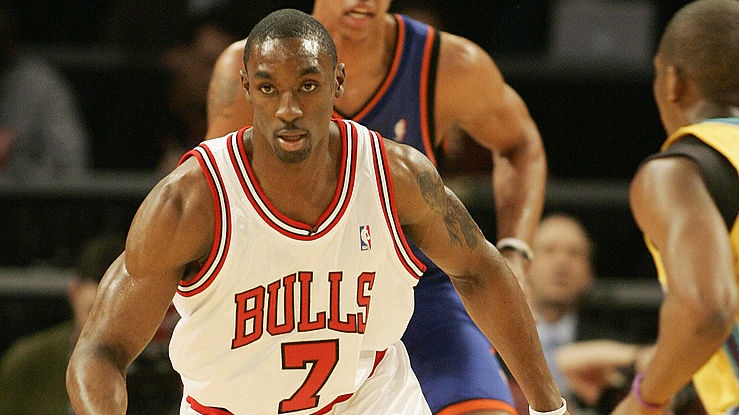Former NBA star Ben Gordon opened up about his struggle with his mental health in an essay for The Players’ Tribune on Thursday.
Recalling how his anxiety culminated after he retired, Gordon wrote that he felt he was once just going through the motions of life and “didn’t feel alive anymore.”
“I had lost my career, my identity, and my family all pretty much simultaneously. I was manic-depressive,” he wrote.
Gordon then revealed he'd attempted suicide.
"I was obsessed with killing myself… I don’t think I wanted to die. But I just couldn’t stand the pain anymore," he wrote. "I took one of those heavyweight jump ropes — the thick rubber ones — and I tied it around my neck. Got a chair. And I hung myself, for real."
Before, he had channeled this anxious energy into sports. Rather than his obsession being seen as something bad, "basketball rewards obsession.” Gordon admitted that his persona as a professional athlete was not in tune with what was actually happening in his mind. While he may have looked bored or unfocused to those around him, in actuality, his “mind is on fire.” The former shooting guard for the Chicago Bulls explained how he would meticulously plan out every minute of a game before the matchup.
At the end of his career, Gordon said he felt “anger and pain and fear and regret" upon realizing he'd been "internalizing and compartmentalizing."
He grappled with the idea of seeing a therapist, but that in tandem with a mindset he refers to as “typical Black male," he didn’t believe talking to someone would help.
Gordon experienced insomnia, paranoia, delusions and panic attacks. His panic attacks led him to get into trouble with the law. After a few arrests, including one for a felony robbery charge and another for pulling fire alarms in an apartment complex, Gordon was committed to a psychiatric facility. He recalls it as a frightening experience and began to separate Ben Gordon the basketball player from Ben Gordon the human.
The now 36-year-old reminds everyone that mental illness can afflict anyone.
“It’s not like I woke up one morning and I was this quiet, humble NBA dude that nobody thought twice about, and the next morning I woke up and I was bugging the f**k out in the lobby of the Waldorf Astoria on some God-complex s**t,” Gordon said. “It was a slow, gradual thing that just got out of control because I didn’t know how to get help.”
He credits getting arrested with saving his life, as the presiding judge mandated therapy. After completing the 18 months of therapy required by the court, he continued going to sessions.
Gordon felt compelled to share his story because he knows there are other athletes who feel the same way. He wants them to know they aren’t alone.
“But I’m not perpetually crazy. I had a moment. I got help for that moment. I got to know myself from that moment. And I’m still working through some things, no doubt,” he said. “But for me, this is a start.”
His essay has been met with an outpouring of love from fans, fellow NBA players and more.
“Mental illness touches everybody. Every community, every person. Either you or somebody you love is going to be touched by it at some point.”https://t.co/ueYILysf5A
— Kevin Love (@kevinlove) February 21, 2020
“There was a point in time when I thought about killing myself every single day for about six weeks.”
I hope every single person takes a moment tonight to read this emotional piece from Ben Gordon.
Be kind to each other.https://t.co/Y3ynps8H9t
— Taylor Rooks (@TaylorRooks) February 21, 2020
Folks…read this. This hit me. I know Ben Gordon. THIS BG he’s referring to. The vulnerability in this is…chilling https://t.co/aWKtxi2W0F
— Vincent Goodwill (@VinceGoodwill) February 21, 2020
The National Suicide Prevention Lifeline provides free and confidential support for people in distress around the clock. The number is 1-800-273-8255.
